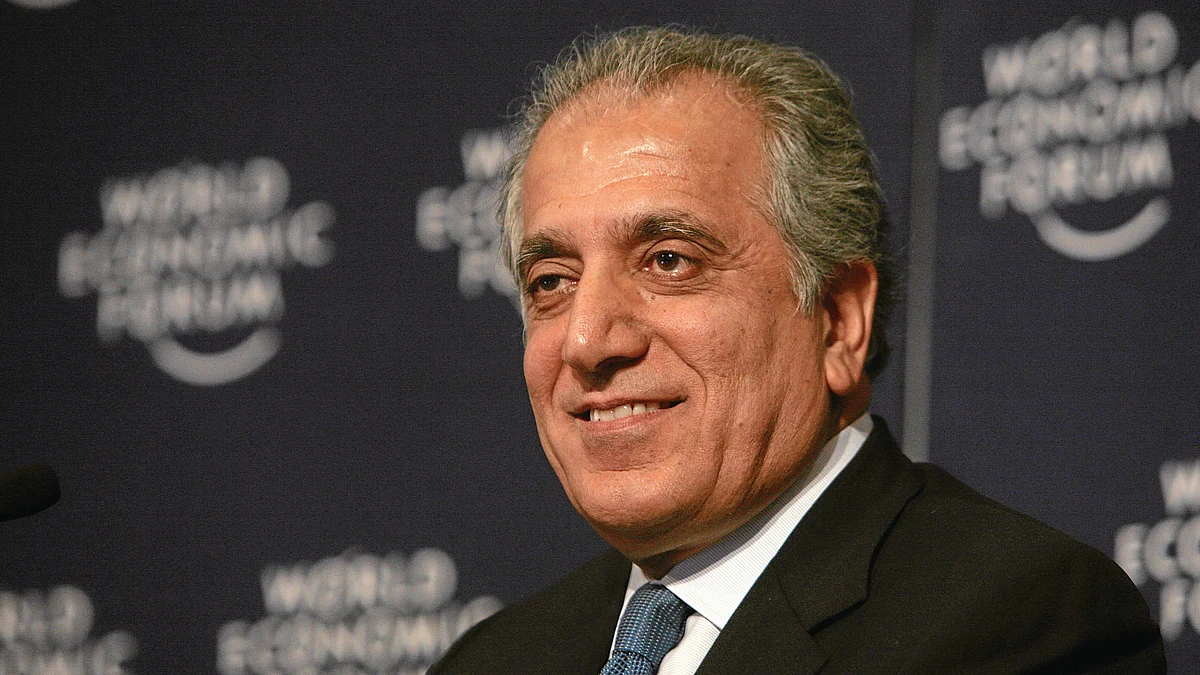India’s ‘good relations’ with Iran and Russia important to the US
Former US envoy Zalmay Khalizad reckons that a stronger role for India in President Donald Trump’s South Asia strategy is motivated by the fact that India enjoys warm relations with Iran and Russia.

Born in Afghanistan and educated at the American University of Beirut and the University of Chicago, Zalmay Khalizad has previously served as US’ envoy to Afghanistan, Iraq and the United Nations. Currently a consultant to Washington DC-based think tank Centre for Strategic and International Studies (CSIS), the George W Bush-era diplomat speaks on Indo-US relations exclusively to National Herald’s Dhairya Maheshwari.
Excerpts from the interview:
Q. How different is the current US President’s South Asia strategy from his predecessors?
A. In Afghanistan, the presence of the US forces is not time-bound as it was under President Barack Obama. There is also a much sharper focus on the role of Pakistan in providing sanctuaries to terrorists, prominently the Taliban, and being unhelpful in Afghanistan. Another major change is that this administration is much more open to having strategic ties with India, on the defence side as well as on regional issues and counter-terrorism.
Q. US’ pulling out of the Joint Comprehensive Plan of Action (signed by China, US, Russia, France, Germany, UK and Iran in 2015) has direct financial and strategic implications for India. Doesn’t the move severely undermine India’s interests?
A. How the decision would affect India or Afghanistan is an issue that still needs to be investigated. How it would affect India’s prospects in Chabahar or trade between Afghanistan and Iran still isn’t clear.
Under the US law, there are certain provisions aimed at exempting allies from US sanctions on hostile countries. In this case, the US Congress may look favourably upon infrastructure helping in the reconstruction of Afghanistan.
While India may not agree in principle about pulling out of the Iran deal, I understand the Trump administration took on board India and other key allies before announcing America’s withdrawal from the deal.
Q. Why is the US still involved in the Middle-East? What are its interests in the region now?
A. Well, the US is now producing a lot more energy at home but the Middle-East is a strategic part of the world and many countries, including key US allies, depend on the Middle-East for energy.
There is also the issue of terrorism and extremism. We have allies in the region—Israel and the Gulf states. Then, there are issues of proliferation, besides terrorism and extremism. So, there are a lot of issues of concern, which means that the US cannot be indifferent to the region.
The difference now is that while the Obama administration looked for potential partnerships in the region, including with Iran, and a balanced approach with regards to Iran, Arab states and Israel, the Trump administration looks at Iran as a hostile power that seeks to dominate the region.
Q. What do you think about President Trump’s decision to move the US’ embassy in Israel to Jerusalem, sparking protests and killing of dozens of Palestinians ?
A. There has been a US law for some time that requires it to have its embassy in Jerusalem. But there have been waivers signed in that law by previous US administrations. But what President Trump has done is deliver on a campaign promise. But the question is whether a two-state solution precludes the establishment of East Jerusalem as the capital of an independent Palestinian state. I don’t think one precludes the other.
Q. Why is the Taliban making a comeback in Afghanistan ?
A. There is no doubt that the key reason for the persistence of the Taliban has been the hostile policies of Pakistan which have provided sanctuaries and support for the Taliban. We all know that the leadership of the Taliban in several shuras—the Quetta shura and Peshawar shura- are based out of Pakistan.
But for several years, Pakistan has denied its involvement in providing support to the Taliban and other banned terrorist outfits. The Trump administration has very correctly identified Pakistani support as a major reason for the Taliban’s resurgence in Afghanistan. The US is now pressuring Pakistan to take active measures to check support for the Taliban on its soil.
So, the US would have to look for additional pressure to achieve its aims with Pakistan. Other rivals of the United States, such as Iran and Russia, also complicate the situation in Afghanistan.
It is here that I believe that US-India cooperation could play a helpful role as India enjoys good relations with both Russia and Iran. India and the US also share the goal of seeing Afghanistan as independent. India could play a role in discouraging Iran and Russia from embracing an extremist outfit like the Taliban.
Q. Has India replaced Pakistan as the key US ally in South Asia under President Donald Trump?
A. I think the relationship is evolving. The Soviet Union no longer exists, which had brought the United States and Pakistan together. India was non-aligned then. But, now the world is different altogether. China is a rising power. India, like the US, wants an Indo-Pacific that is free. Terrorism is a big issue in the region, as well globally. So, there is an increased convergence. Lastly, India and the US are finding a common ground on many key economic issues.
Some of the things we did with China cannot go on in the same way. India, thus, could be a place where we can cooperate on the economic front. The India-US cooperation could serve to counter China’s One Belt One Road (OBOR) project. On digital technologies, the cooperation between both our countries could check the “Surveillance state” model that China is looking to build and export.
(The interview first appeared in NH on Sunday).
Follow us on: Facebook, Twitter, Google News, Instagram
Join our official telegram channel (@nationalherald) and stay updated with the latest headlines
